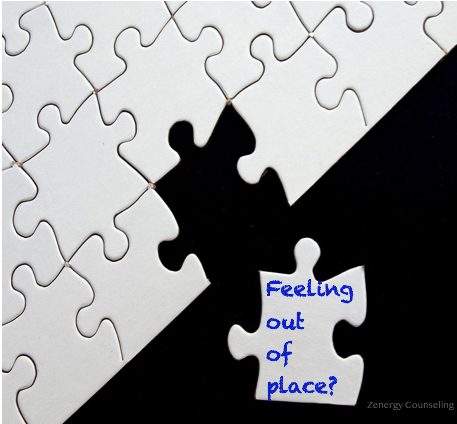Reading the name “Adjustment Disorder” makes ‘it’ sound so simple- having a hard time “adjusting.” Anyone who has experienced it will tell you that minimizing the impact of Adjustment Disorder can have a lasting impact on your mental health.
Adjustment disorder is sometimes called “situational depression” because it mirrors many symptoms of depression such as anger, anxiety, sadness, hopelessness, loss of interest, etc. The trigger is experiencing excessive stress or more stress than what your coping skills in place can handle, generally, the intensity is not as profound as clinical depression or PTSD. Many times individuals who experience these symptoms may seek comfort in unhealthy coping methods in hopes of numbing the feelings or to “make it go away”, but it continues to add to the symptoms and stressors.
How do you know if you are experiencing adjustment disorder? Generally, it starts with a significant number of stressors (single or multiple issues) impacting your ability to balance your emotions in a healthy manner. The symptoms generally become more apparent approximately three months after the change and may last up to six months after the end of the initial stressor.
For example, the recent government shutdown created a financial stressor for numerous families; some of these families may be living paycheck to paycheck and not have enough to cover the bills for the upcoming month. Let’s give some benefit of the doubt and say that there are multiple amazing individuals who are willing to help these families by allowing them to pay bills late without extra fees, but the financial security these families had is now not as strong as they used to be. Experiencing an array of emotions is a natural part of this process, but if the symptoms continue to become increasingly upsetting and end up lasting longer than 6 months after a solution to the government shutdown is available, the diagnosis has passed Adjustment Disorder and reached something more intense.
Anyone can experience adjustment disorder. We all have healthy/unhealthy coping skills and they help us manage our regular level of stress. Once the new “normal” becomes much higher than we can tolerate, or we have not been able to build up a higher tolerance level, it will continue to impact your behavior. It makes it increasingly more difficult for those struggling with past mental health diagnosis who thrive on routine or those who need to pay a bit more attention to building their healthy coping skills.
The good news is that this is not the end of life as you know it! You can overcome this and there are ways to regain control of your life:
- Seek help! Start with your primary care physician and assess for any possible physical/health issues that may be adding to your difficulties. Your doctor can help you figure out which route would be most helpful.
- I am an avid supporter of therapy so here it is- works with a Mental Health Professional to rebuild or fortify your coping skills and process emotions. We all grow with time and maybe the coping skills that used to work for you need a little tweaking. It doesn’t mean you don’t know what you are doing but that you are just recognizing when it is time to add new tools to the toolbox.
- DO NOT LISTEN TO THOSE WHO TELL YOU TO “GET OVER IT.” Reread that again- I really mean it. You were/are going through a difficult time- your DNA, your life experience, your set of coping skills are all different and you are handling life to the best of your ability. It’s easy to look back and think about how you “could have” handled situations differently but this is more than that. No one tells a person suffering from flu to “get over it”- this is your flu. You need time and nurture to heal from this.
- Know and be open to the possible need for medication. Our bodies create various chemicals that help it function to the best of its ability. Sometimes it may have used all or most of a certain chemical from the “bank” and you need some external support to build up your deposit. This specific action can make a huge impact on your ability to manage and balance your emotions which will lead to a more calm and less-stressful life.
- Keep a log/journal of changes in behavior you notice. When we are trying to save money, we keep a log of expenses (daily or monthly); think of this as your way of keeping track of where you “spent” which emotion and review them. Journaling is one of my favorite tools to use from Cognitive Behavioral Therapy (CBT) and it is such a great way of an individual to celebrate his/her growth.
I would like to take a moment to reiterate that everyone has unique lives and needs; those were five steps that I felt could help as basic tools that can be useful for anyone reading to try out but I cannot emphasize the importance of reaching out for help when you realize that things are becoming more than what you are ready for. The longer you wait, the more time you spend being miserable.
Don’t wait. Reach out!

